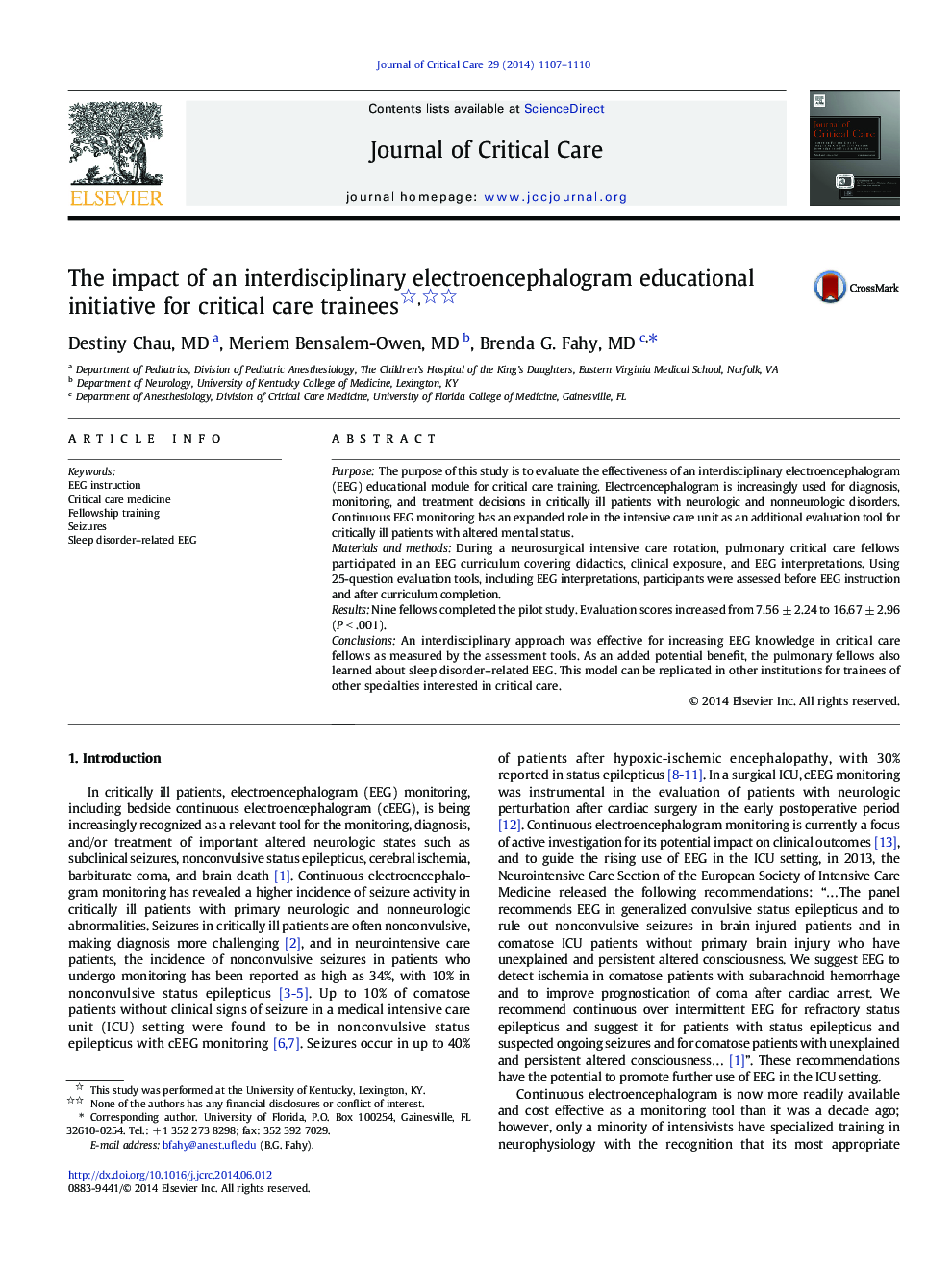| Article ID | Journal | Published Year | Pages | File Type |
|---|---|---|---|---|
| 5886219 | Journal of Critical Care | 2014 | 4 Pages |
PurposeThe purpose of this study is to evaluate the effectiveness of an interdisciplinary electroencephalogram (EEG) educational module for critical care training. Electroencephalogram is increasingly used for diagnosis, monitoring, and treatment decisions in critically ill patients with neurologic and nonneurologic disorders. Continuous EEG monitoring has an expanded role in the intensive care unit as an additional evaluation tool for critically ill patients with altered mental status.Materials and methodsDuring a neurosurgical intensive care rotation, pulmonary critical care fellows participated in an EEG curriculum covering didactics, clinical exposure, and EEG interpretations. Using 25-question evaluation tools, including EEG interpretations, participants were assessed before EEG instruction and after curriculum completion.ResultsNine fellows completed the pilot study. Evaluation scores increased from 7.56 ± 2.24 to 16.67 ± 2.96 (P < .001).ConclusionsAn interdisciplinary approach was effective for increasing EEG knowledge in critical care fellows as measured by the assessment tools. As an added potential benefit, the pulmonary fellows also learned about sleep disorder-related EEG. This model can be replicated in other institutions for trainees of other specialties interested in critical care.
